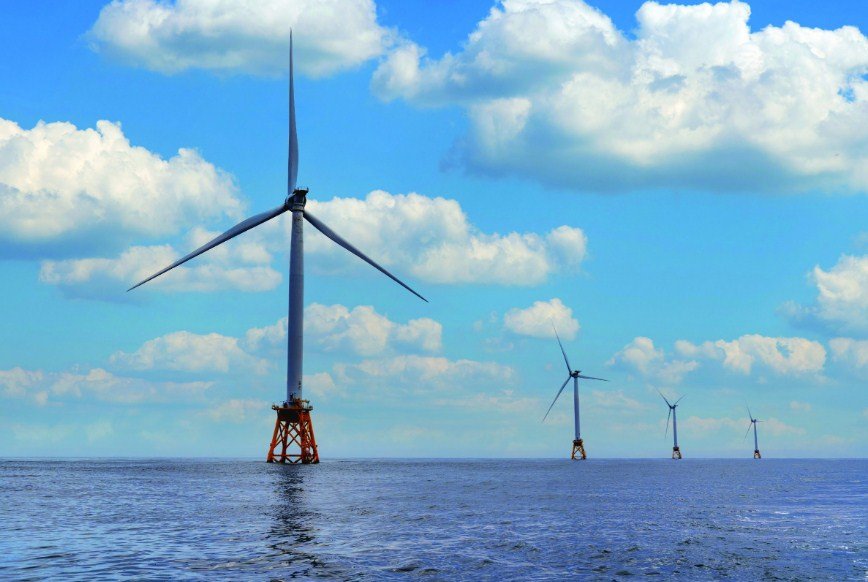Virginia lawmakers have postponed a bill that would allow non-utility companies to supply offshore wind energy to the state until 2025. The bill, introduced by Delegate Jay Jones, aimed to increase competition and lower costs for offshore wind projects in Virginia, which has set a goal of 100% clean power by 2045.
Why the bill was pushed back
The bill, HB 2200, faced opposition from Dominion Energy, the state’s largest utility and the sole owner of the Coastal Virginia Offshore Wind (CVOW) project, which is expected to provide 2,600 megawatts of clean energy by 2026. Dominion argued that the bill would undermine its investment and jeopardize the reliability of the grid. The bill also raised concerns from some environmental groups, who feared that it would open the door for fossil fuel companies to enter the offshore wind market.
The bill was referred to the House Labor and Commerce Committee, where it was amended to limit the amount of offshore wind that non-utility suppliers could provide to 500 megawatts, and to require them to obtain approval from the State Corporation Commission. However, the committee decided to continue the bill to 2025, effectively killing it for this session.
What the bill supporters say
Delegate Jones, who represents Norfolk, said that his bill was intended to create more opportunities for offshore wind development in Virginia, which has the potential to become a hub for the industry in the Atlantic region. He said that allowing non-utility suppliers to compete with Dominion would drive down costs and benefit consumers, as well as create jobs and spur innovation.

He also said that his bill would not interfere with Dominion’s CVOW project, which has already received federal approval and is on track to be the largest offshore wind farm in the nation. He said that his bill would only apply to future offshore wind leases that have not been awarded yet.
Jones said that he was disappointed by the committee’s decision, but he vowed to bring back his bill next year. He said that he hoped to work with Dominion and other stakeholders to find a compromise that would advance offshore wind in Virginia.
What the bill opponents say
Dominion Energy said that it opposed the bill because it would create uncertainty and risk for its CVOW project, which represents a $7.8 billion investment and a major step toward meeting Virginia’s clean energy goals. The company said that it has already secured the necessary permits, contracts, and financing for the project, and that any changes to the regulatory framework could jeopardize its completion.
Dominion also said that it supports competition and innovation in the offshore wind sector, but that it needs to maintain control over the transmission and integration of the offshore wind energy into the grid. The company said that it has the expertise and experience to ensure the reliability and stability of the grid, which is essential for public safety and economic growth.
Dominion said that it welcomes the opportunity to collaborate with Delegate Jones and other legislators to find solutions that would support offshore wind development in Virginia, while protecting the interests of its customers and shareholders.
How offshore wind fits into Virginia’s energy plan
Virginia has set an ambitious target of achieving 100% clean energy by 2045, as part of its Clean Economy Act passed in 2020. The act mandates that Dominion and other utilities procure a certain amount of renewable energy, including offshore wind, solar, and energy storage, to reduce greenhouse gas emissions and combat climate change.
Offshore wind is expected to play a key role in Virginia’s energy transition, as it offers a large and steady source of clean power that can complement the variability of solar and other renewables. Virginia has a favorable location for offshore wind, with a long coastline, shallow waters, and strong winds. The state also has a skilled workforce, a robust port infrastructure, and a supportive political climate for offshore wind development.
Virginia’s offshore wind potential is estimated at 86 gigawatts, enough to power more than 20 million homes. The state has already leased two areas for offshore wind development, one for Dominion’s CVOW project, and another for a possible second project by Avangrid Renewables. The state is also working with the federal government to identify and auction additional offshore wind areas in the future.
Offshore wind is expected to create thousands of jobs and generate billions of dollars in economic activity for Virginia, as well as reduce air pollution and improve public health. Offshore wind is also seen as a strategic opportunity for Virginia to become a leader and a hub for the offshore wind industry in the U.S., which is projected to grow rapidly in the coming years.

Comments